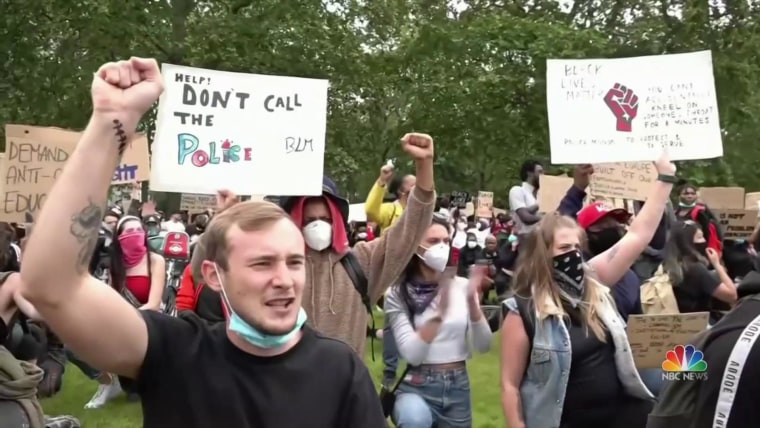One of the four former Minneapolis police officers charged in George Floyd’s death tried to warn his fellow officers during the arrest, his attorney claimed in court Thursday.
The man, J. Alexander Kueng, hadn’t yet completed his third full shift as a police officer when the deadly arrest occurred, his attorney, Tom Plunkett, claimed. Plunkett said Kueng told his fellow officers as they were detaining Floyd, “You shouldn’t do that.”
Kueng was in court Thursday along with former Officers Tou Thao and Thomas Lane after they were charged Wednesday with aiding and abetting murder, as well as aiding and abetting manslaughter. A fourth former officer, Derek Chauvin, was charged with second-degree murder after video showed that Chauvin placed his knee on Floyd’s neck for more than eight minutes while Floyd was being detained on May 25.
Lane was also new to the job, having been on the force for only four days when the incident occurred, his attorney, Earl Gray, claimed. Gray said Lane twice asked Chauvin, a training officer, “Shall we roll him over?” He also expressed concern that Floyd may be in “delirium,” Gray said.
“What is my client supposed to do other than follow what the training officer said?” Gray asked in court.
The Morning Rundown
Get a head start on the morning’s top stories.
A judge ordered Kueng, Lane and Thao held an unconditional bail of $1 million compounded with $750,000 of conditional bail. No pleas were entered.
Full coverage of George Floyd’s death and protests around the country
All four of the former officers face maximum sentences of 40 years in prison, according to the criminal complaints.
Multiple videos of Floyd’s arrest have been released, one of them showing him pinned down by three officers near a patrol car while a fourth stands near his head.
“Please, please, please, I can’t breathe,” Floyd begged in a video recorded by a bystander. “My stomach hurts. My neck hurts. Please, please. I can’t breathe.”
Lane and Kueng were the first officers to arrive at the scene as they investigated a report that a counterfeit $20 bill may have been passed at the Cup Foods grocery store, according to the complaint against Chauvin. When Lane found Floyd parked nearby, he pulled his gun, had Floyd get out of his car and handcuffed him, the complaint said.
Floyd was eventually put face down in handcuffs on the pavement, with Kueng holding down his back and Lane pressing down his legs, the charging document against Chauvin said. While a distressed Floyd said “I can’t breathe,” “Mama” and “please” several times, Lane asked, “Should we roll him on his side?” according to the documents.
“No, staying put where we got him,” Chauvin responded, the complaint said. “I am worried about excited delirium or whatever,” Lane said, according to the complaint. “That’s why we have him on his stomach,” Chauvin responded, the complaint said.
The official autopsy from the Hennepin County medical examiner’s office listed Floyd’s cause of death as a “cardiopulmonary arrest complicating law enforcement subdual, restraint, and neck compression.”
The medical examiner ruled that Floyd’s death was a homicide but added that he had “significant” underlying conditions, including hypertensive heart disease, fentanyl intoxication and recent methamphetamine use.
But an examination funded by Floyd’s family reached a somewhat different conclusion. It found that police officers’ pressing on his neck and body cut blood and air flow to his brain, causing him to die by mechanical asphyxia, pathologists hired by the family said.
Chauvin was initially charged with third-degree murder and manslaughter last week, but Minnesota Attorney General Keith Ellison elevated the case by adding a second-degree murder charge Wednesday. Ellison said his team will assert that Chauvin committed a felony assault that unintentionally resulted in Floyd’s death, which fits the requirements for second-degree murder.













